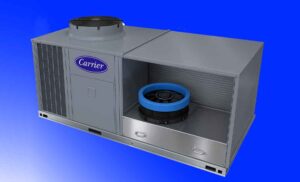MCS the sole certification scheme despite industry concerns
4th November 2025
UK: The government is to make the Microgeneration Certification Scheme (MCS) the sole certification scheme for the CHHM and the Boiler Upgrade Scheme (BUS).
After completion of two consultancies last week, the Department for Energy Security and Net Zero (DESNZ) has confirmed it is planning to proceed with the proposal to mandate MCS as the sole certification scheme for clean heat measures under the Boiler Upgrade Scheme (BUS), ECO4 (Energy Company Obligation), Warm Homes: Social Housing Fund (WH:SHF), Warm Homes: Local Grant (WH:LG), and the Clean Heat Market Mechanism (CHMM).
The decision was taken despite a majority of respondents being critical of the current MCS and preferring the option of more than one certification body. While 21 of the 54 respondents supported the idea of only one certification body, 27 were against and six responded neutrally.
The majority of respondents who were not supportive of the proposals raised concerns around monopoly power, suggesting that it could lead to higher prices, reduce incentives on the certification body to improve its performance, and create a single point of failure.
Respondents also raised concerns they had with the performance of the existing certification body, including around the cost and complexity of certification, managing consumer protection issues, maintaining high installation standards and engagement with industry stakeholders.
Those in favour argued that a single certification body would reduce the administrative burden for installers, and provide more robust consumer protections by reducing complexity, leading to greater public trust and confidence. Another advantage highlighted was that a single certification body helps to provide greater oversight and accountability, with a single point of contact for any problems, with GasSafe cited as a comparison.
Respondents raised greater concerns around the current Microgeneration Certification Scheme being the only certification body.
Asked whether the current MCS should be the only certification body, 32 respondents were against, with only 18 in favour.
Concerns were raised around a private company having sole certification status. Some respondents stated a preference for greater transparency around the decision, for instance, through a standalone consultation or through a tendering process.
Respondents that were supportive of the proposals broadly saw MCS as the only viable option to be the sole certification body as they are established in the market. Some respondents suggested that further measures should be implemented alongside this change, for example providing sole certification for a limited timeframe or bringing MCS into public ownership.
Despite this, the government decided to proceed with the proposal to mandate MCS as the sole certification scheme for the CHMM. This is seen as an interim step ahead of the implementation of longer-term system reforms to the consumer protection landscape.
The government believes that allowing for multiple certification schemes ahead of the implementation of these reforms would add further complexity to the consumer protection landscape and create confusion for consumers. It could also potentially undermine standards, as competing certification schemes may be incentivised to offer lower prices and/or easier or quicker certification, which may result in lower standards, less rigorous assessment and audit, and weakened consumer protection.
The government said it recognised the concerns that mandating a sole certification scheme would remove competition, and that this could undermine incentives to improve certification scheme efficiency and the service provided to installers and consumers. The government considers that in the timeframe ahead of the implementation of system reforms, any benefits of allowing for competition are unlikely to outweigh the disadvantages.
However, to mitigate the potential risks, the government said it would place a DESNZ observer on the MCS Service Company decision-making boards, put in place an MoU between DESNZ and MCS and require the MCS Consumer Protection Oversight Panel to publish an annual report on their consumer protection performance.
It said it acknowledged the wider concerns raised about the performance of MCS and the cost and administrative burden associated with MCS certification, particularly for smaller installer businesses. The government will continue to monitor the implementation of the redeveloped MCS scheme, which aims to reduce bureaucracy and place greater focus on delivered quality. Separately, the government recently sought views on reducing installer administrative and regulatory burdens with regards to registration of assets, as part of a call for evidence on improving the visibility of distributed energy assets.
In response to the decision, the MCS said it looked forward to continuing its work with the Department for Energy Security and Net Zero in supporting the deployment of clean heat measures across the UK.
“As a charity-owned company, we are focused solely on improving quality and consumer protection for the greater good of the sector. The effective delivery of the Scheme is our single focus; to give everyone confidence in home-grown energy,” the MCS said.
In response to a question on LinkedIn from Mars Mlodzinski, founder of the Renewable Heating Hub, the Heat Pump Association (HPA) said its members had not reached a consensus as to whether MCS should be mandated as the sole certification scheme. It did, however, insist that HPA members supported efforts to improve the consumer journey and streamline the process for redress.







